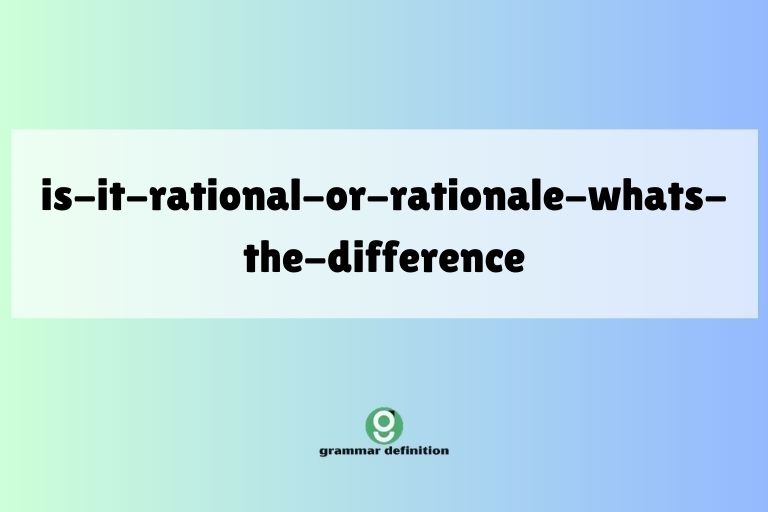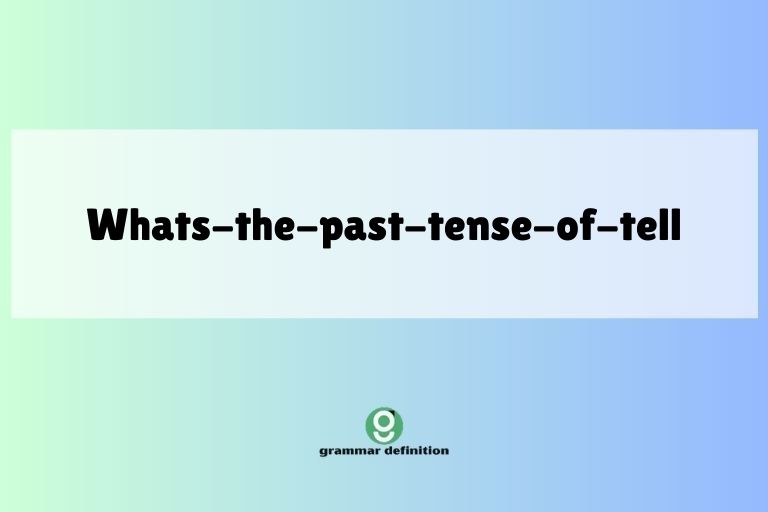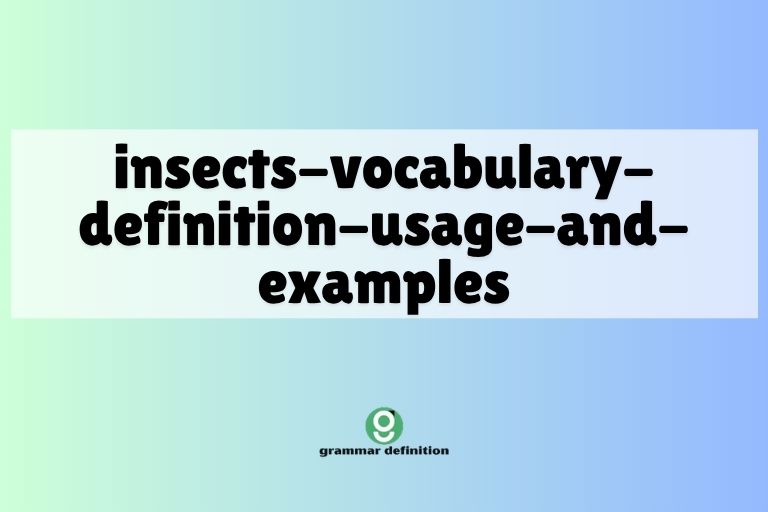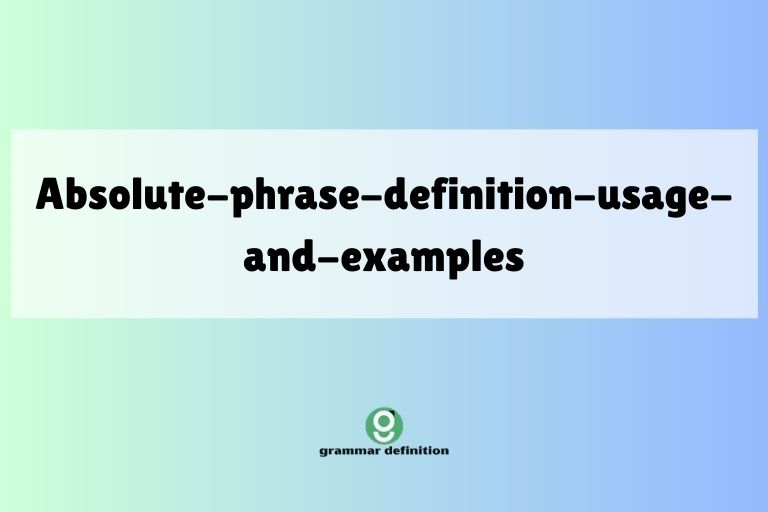Recurring vs. Reoccurring: Mastering Correct Usage
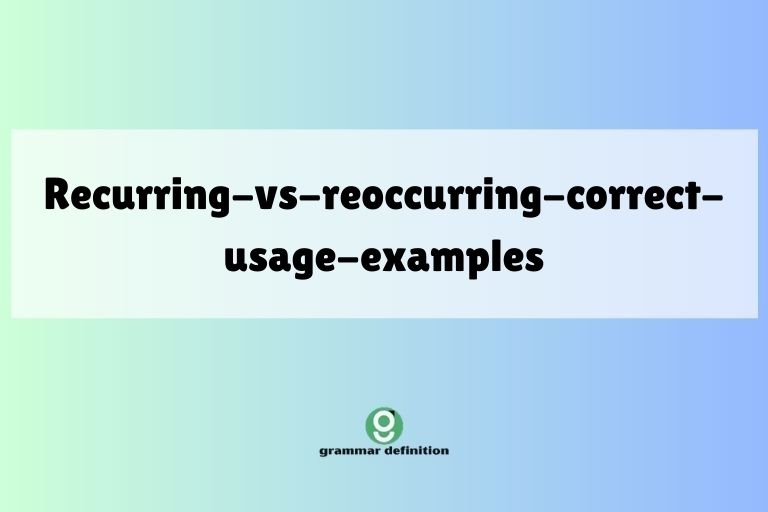
The English language, with its rich history and evolving nature, often presents subtle yet significant challenges. One such challenge lies in distinguishing between the words “recurring” and “reoccurring.” While they might appear interchangeable at first glance, understanding their nuances is crucial for precise and effective communication.
This article delves into the definitions, usage, and common pitfalls associated with these two terms, providing a comprehensive guide for anyone seeking to refine their English grammar skills. Whether you are a student, a professional, or simply an avid language learner, mastering the correct usage of “recurring” and “reoccurring” will undoubtedly enhance your writing and speaking abilities.
This guide will meticulously explore the subtle differences between these words, offering clear definitions, numerous examples, and practical exercises so you can confidently use them in your everyday communication. By the end of this article, you’ll possess a deep understanding of when and how to use each word, ensuring accuracy and clarity in your writing and speech.
Table of Contents
- Introduction
- Definitions: Recurring vs. Reoccurring
- Structural Breakdown
- Types and Categories of Recurrence
- Examples of Recurring and Reoccurring
- Usage Rules
- Common Mistakes
- Practice Exercises
- Advanced Topics
- Frequently Asked Questions
- Conclusion
Definitions: Recurring vs. Reoccurring
To understand the correct usage of “recurring” and “reoccurring,” it’s essential to define each word and examine their etymological roots. While both words relate to something happening again, their connotations and preferred contexts differ slightly.
Recurring: This term implies that something happens repeatedly at intervals or comes back into one’s mind or experience. It suggests a pattern or a cycle of events that happen predictably or naturally. The emphasis is on the idea of something returning or appearing again after an absence.
Reoccurring: This word also indicates something happening again, but it typically suggests a less structured or predictable repetition. It often implies that something is happening again, possibly after a pause or interruption. “Reoccurring” emphasizes the act of happening again rather than a structured cycle.
While “recurring” is generally considered the more standard and widely accepted form, “reoccurring” is not necessarily incorrect, but it’s used less frequently and may be perceived as less formal or even redundant. The prefix “re-” already implies “again,” making the double “re-” in “reoccurring” seem unnecessary to some.
Structural Breakdown
Breaking down the structure of these words helps to understand their formation and usage. Both words are derived from the verb “to occur,” which means to happen or take place.
Recurring: This word is formed by adding the prefix “re-” (meaning again) and the suffix “-ing” (denoting a continuous or ongoing action) to the root word “cur.” The root “cur” comes from the Latin word “currere,” meaning “to run.” Therefore, “recurring” literally means “running again.”
Reoccurring: This word is formed by adding the prefix “re-” twice (re- + occur + -ing). This double application of “re-” is what makes some linguists and style guides consider it redundant. While not grammatically incorrect, it’s often viewed as less streamlined and less preferable compared to “recurring.”
The structural difference highlights the subtle distinction in meaning. “Recurring” emphasizes the continuous, cyclical nature of the event, while “reoccurring” simply emphasizes the event happening again.
The choice between the two often depends on the context and the desired emphasis.
Types and Categories of Recurrence
To better understand the application of “recurring” and “reoccurring,” it’s helpful to categorize different types of recurrence based on the context in which they are used.
Cyclical Recurrence
This type refers to events or phenomena that happen in a predictable cycle, such as seasons, tides, or daily routines. In these cases, “recurring” is the preferred term.
Intermittent Recurrence
This category describes events that happen again but not necessarily at regular intervals. These events might be sporadic or unpredictable.
Either “recurring” or “reoccurring” could be used, but “recurring” is still generally preferred.
Mental Recurrence
This refers to thoughts, memories, or emotions that come back to one’s mind. “Recurring” is typically used to describe these mental phenomena, suggesting a persistent or intrusive nature.
Problematic Recurrence
This type involves issues or problems that repeatedly arise, often causing frustration or concern. Again, “recurring” is the more common and often more appropriate choice.
Examples of Recurring and Reoccurring
This section provides extensive examples to illustrate the correct usage of “recurring” and “reoccurring” in various contexts. These examples are organized into tables for clarity and ease of understanding.
Examples of “Recurring”
The following table provides examples of “recurring” used in different contexts. Note how “recurring” often emphasizes a cyclical or patterned repetition.
| Sentence | Context |
|---|---|
| The recurring theme in his novels is the struggle against adversity. | Literary analysis |
| She experienced recurring nightmares after the traumatic event. | Psychology |
| Our company faces recurring issues with supply chain logistics. | Business |
| The recurring decimal in the calculation made the answer difficult to determine. | Mathematics |
| Spring is a time for the recurring bloom of flowers. | Nature |
| He suffered from recurring bouts of illness during the winter months. | Health |
| The recurring sound of the clock chiming annoyed her. | Everyday life |
| The recurring expenses made it difficult to manage the budget. | Finance |
| The recurring plot device in the film was a flashback. | Film analysis |
| The recurring question in the debate was about economic policy. | Politics |
| The recurring role of the actor made him a fan favorite. | Entertainment |
| The recurring need for maintenance made it a costly investment. | Property Management |
| The recurring pattern in the data suggested a trend. | Data Analysis |
| The artist used a recurring motif in his paintings. | Art History |
| The recurring meetings took place every Monday morning. | Business |
| The recurring waves crashed against the shore. | Nature |
| The recurring joke in the show always got a laugh. | Comedy |
| The recurring error in the code caused the program to crash. | Programming |
| The recurring dream was always the same. | Psychology |
| The recurring appointment was scheduled for next week. | Scheduling |
| The recurring visits to the doctor became routine. | Healthcare |
| The recurring cycle of the seasons influences agriculture. | Agriculture |
| The recurring problem required a permanent solution. | Problem Solving |
| The recurring thought kept her awake at night. | Mental Health |
Examples of “Reoccurring” (Less Common)
The following table shows examples where “reoccurring” might be used. However, note that “recurring” would often be a better choice, and these sentences might sound slightly less natural to some native speakers.
| Sentence | Context |
|---|---|
| The issue is reoccurring more frequently than before. | General |
| We are addressing the reoccurring problems in the system. | Technical |
| The symptoms are reoccurring after the treatment stopped. | Medical |
| The question of funding is reoccurring in every meeting. | Business |
| The debate about climate change is reoccurring globally. | Environmental Science |
| The need for security is reoccurring in our society. | Sociology |
| The opportunity to learn is reoccurring every day. | Education |
| The challenge of innovation is reoccurring in the tech industry. | Technology |
| The demand for sustainable practices is reoccurring in business. | Sustainability |
| The importance of education is reoccurring in our conversations. | Education |
| The topic of discussion was reoccurring throughout the conference. | General |
| The need for assistance was reoccurring among the refugees. | Humanitarian Aid |
| The popularity of the artist was reoccurring after his death. | Art History |
| The trend of online shopping is reoccurring and growing. | E-commerce |
| The demand for renewable energy is reoccurring worldwide. | Energy |
| The issue of poverty is reoccurring in many countries. | Economics |
| The need for mental health support is reoccurring in our communities. | Mental Health |
| The interest in space exploration is reoccurring among scientists. | Space Exploration |
| The concern for environmental protection is reoccurring among activists. | Environmentalism |
| The importance of cultural preservation is reoccurring in society. | Cultural Studies |
| The desire for world peace is reoccurring among leaders. | Politics |
| The need for affordable housing is reoccurring in urban areas. | Urban Planning |
| The interest in historical events is reoccurring among scholars. | History |
| The issue of healthcare access is reoccurring globally. | Healthcare |
Comparison Table: Recurring vs. Reoccurring
This table summarizes the key differences between “recurring” and “reoccurring” to help you make the right choice.
| Feature | Recurring | Reoccurring |
|---|---|---|
| Meaning | Happening repeatedly at intervals; cyclical or patterned. | Happening again; less structured or predictable repetition. |
| Usage | More common and widely accepted. | Less common; may be perceived as redundant or less formal. |
| Emphasis | Cyclical nature, pattern, or return. | The act of happening again. |
| Formality | Generally more formal and preferred in writing. | Less formal; use with caution. |
| Examples | Recurring nightmares, recurring expenses, recurring theme. | Reoccurring issues, reoccurring symptoms (less preferred). |
Usage Rules
While both words convey the idea of something happening again, the following rules and guidelines will help you choose the more appropriate term.
- Prefer “Recurring” for Cyclical or Patterned Events: When referring to events that occur in a predictable cycle or pattern, such as seasons, tides, or daily routines, use “recurring.”
- Consider “Reoccurring” for Less Structured Repetition (But Still Prefer “Recurring”): If the event happens again but not necessarily at regular intervals, you could use “reoccurring,” but “recurring” is still generally a better choice to maintain clarity and formality.
- Use “Recurring” for Mental Phenomena: When describing thoughts, memories, or emotions that come back to one’s mind, “recurring” is the standard and more appropriate term.
- Avoid Redundancy: Be mindful of the potential redundancy of “reoccurring.” The prefix “re-” already implies “again,” so adding it twice might sound awkward or unnecessary to some listeners or readers.
- Consider Your Audience: If you’re writing for a formal audience or in an academic context, “recurring” is the safer and more professional choice.
Common Mistakes
One of the most common mistakes is using “reoccurring” when “recurring” is more appropriate. Here are some examples of common mistakes and their corrections.
| Incorrect | Correct | Explanation |
|---|---|---|
| The reoccurring nightmare haunted her sleep. | The recurring nightmare haunted her sleep. | “Recurring” is the standard term for repeated mental phenomena. |
| We faced reoccurring problems with the software. | We faced recurring problems with the software. | “Recurring” is generally preferred for repeated issues. |
| The reoccurring expenses made budgeting difficult. | The recurring expenses made budgeting difficult. | “Recurring” is the standard term for repeated expenses. |
| The reoccurring theme in the book was love and loss. | The recurring theme in the book was love and loss. | “Recurring” is the standard term for repeated themes. |
| The reoccurring event happened every year. | The recurring event happened every year. | “Recurring” is preferred for cyclical events. |
Practice Exercises
Test your understanding of “recurring” and “reoccurring” with these practice exercises. Choose the correct word for each sentence.
Exercise 1: Choose the Correct Word
Select the most appropriate word, “recurring” or “reoccurring,” for each sentence.
| Question | Answer |
|---|---|
| 1. She had a ____ dream about falling. | recurring |
| 2. The company faced ____ financial difficulties. | recurring |
| 3. The ____ issue was addressed in the meeting. | recurring |
| 4. The ____ pattern in the data was significant. | recurring |
| 5. The ____ cost of maintenance was a concern. | recurring |
| 6. He experienced ____ headaches after the accident. | recurring |
| 7. The ____ question was raised again and again. | recurring |
| 8. The ____ problem required a new approach. | recurring |
| 9. The ____ need for assistance was evident. | recurring |
| 10. The ____ topic of conversation was the economy. | recurring |
Exercise 2: Fill in the Blanks
Fill in the blanks with either “recurring” or “reoccurring.”
| Question | Answer |
|---|---|
| 1. The ____ payments are automatically deducted from my account. | recurring |
| 2. The ____ expenses made it hard to save money. | recurring |
| 3. The ____ theme in the movie was redemption. | recurring |
| 4. She had a ____ thought that she couldn’t shake off. | recurring |
| 5. The ____ events led to the same outcome. | recurring |
| 6. The ____ problem was affecting productivity. | recurring |
| 7. The ____ issue needed a permanent fix. | recurring |
| 8. The ____ discussion was about the company’s future. | recurring |
| 9. The ____ question was always on her mind. | recurring |
| 10. The ____ need for innovation was clear. | recurring |
Exercise 3: Rewrite the Sentences
Rewrite the following sentences, replacing “reoccurring” with “recurring” where appropriate.
| Original Sentence | Rewritten Sentence |
|---|---|
| 1. The reoccurring thought bothered him all day. | The recurring thought bothered him all day. |
| 2. The reoccurring expenses were difficult to manage. | The recurring expenses were difficult to manage. |
| 3. The reoccurring theme in her work was nature. | The recurring theme in her work was nature. |
| 4. The reoccurring problem needed a solution. | The recurring problem needed a solution. |
| 5. The reoccurring event happened every year. | The recurring event happened every year. |
| 6. The reoccurring nightmare woke her up. | The recurring nightmare woke her up. |
| 7. The reoccurring cost was too high. | The recurring cost was too high. |
| 8. The reoccurring question was never answered. | The recurring question was never answered. |
| 9. The reoccurring need was always present. | The recurring need was always present. |
| 10. The reoccurring issue was a major concern. | The recurring issue was a major concern. |
Advanced Topics
For advanced learners, it’s important to understand the nuances of how “recurring” and “reoccurring” are viewed in different style guides and linguistic circles. While “recurring” is generally preferred, the acceptance of “reoccurring” has evolved over time.
Some style guides strictly recommend “recurring” and discourage the use of “reoccurring,” citing its potential redundancy. Others acknowledge “reoccurring” as a valid, albeit less common, alternative.
The key is to be consistent in your usage and to consider your audience and the context of your writing.
Additionally, understanding the etymology of these words can provide a deeper appreciation for their subtle differences. The Latin root of “cur” emphasizes the cyclical or continuous nature of “recurring,” while the double “re-” in “reoccurring” simply highlights the act of happening again.
Frequently Asked Questions
Here are some frequently asked questions about “recurring” and “reoccurring” to further clarify their usage.
- Is “reoccurring” grammatically incorrect?
No, “reoccurring” is not grammatically incorrect. However, it is often considered redundant and less preferred than “recurring.” The prefix “re-” already implies “again,” so adding it twice can seem unnecessary.
- When should I use “recurring” instead of “reoccurring”?
You should generally use “recurring” when referring to events that happen repeatedly at intervals or in a cyclical pattern. It is also the preferred term for mental phenomena like thoughts or memories.
- Are there any situations where “reoccurring” is more appropriate?
While “recurring” is almost always a better choice, “reoccurring” might be used in situations where you want to emphasize the act of something happening again, even if it’s not part of a structured cycle. However, even in these cases, “recurring” is often still a suitable alternative.
- Why is “recurring” generally preferred?
“Recurring” is generally preferred because it is more concise and avoids the potential redundancy of “reoccurring.” It is also considered more formal and widely accepted in writing.
- How can I remember the difference between “recurring” and “reoccurring”?
Think of “recurring” as referring to something that “re-circles” or “re-runs” in a predictable way. “Reoccurring” is simply something that “occurs again,” but the double “re-” can be a reminder of its potential redundancy.
- Is it okay to use “reoccurring” in informal writing?
While it might be acceptable in informal writing, it’s generally best to stick with “recurring” to maintain clarity and avoid potential criticism. Even in informal contexts, “recurring” is a perfectly suitable and often more elegant choice.
- What do style guides say about “recurring” vs. “reoccurring”?
Most style guides recommend using “recurring” and discourage the use of “reoccurring” due to its redundancy. Always consult the specific style guide you are following for their recommendation.
- Does the context affect which word I should use?
Yes, the context can influence your choice. If you are describing a cyclical event or a recurring thought, “recurring” is the standard term. If you simply want to emphasize that something is happening again, you could theoretically use “reoccurring,” but “recurring” still usually works better.
Conclusion
Understanding the subtle differences between “recurring” and “reoccurring” is crucial for precise and effective communication. While “reoccurring” is not grammatically incorrect, “recurring” is generally the preferred term due to its conciseness, formality, and wider acceptance.
By mastering these nuances, you can enhance the clarity and professionalism of your writing and speaking.
Remember to prefer “recurring” for cyclical events, mental phenomena, and most other contexts. Be mindful of the potential redundancy of “reoccurring” and consider your audience when making your choice.
With practice and attention to detail, you can confidently use these words correctly and elevate your English language skills. Continue to practice, observe how these words are used in various contexts, and consult reliable resources to further refine your understanding.


